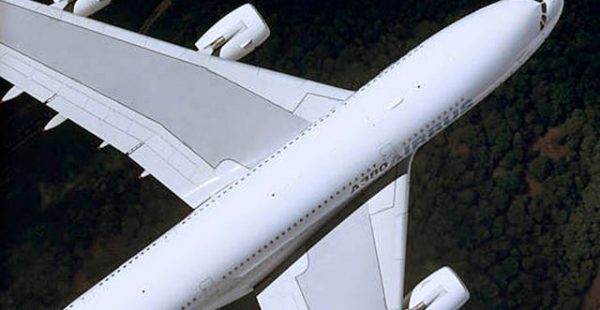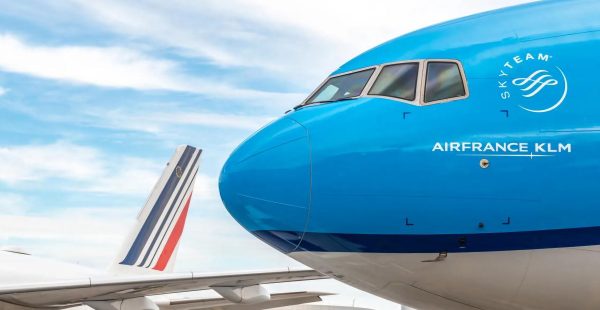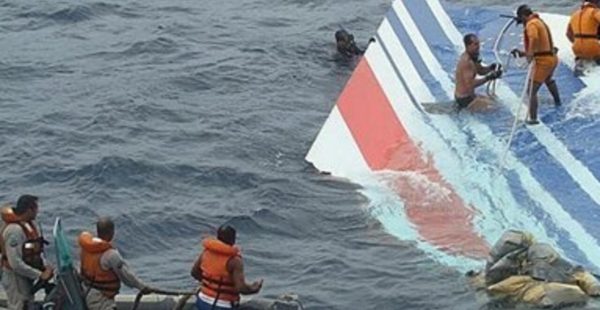Publié le 2 décembre 2025 à 09h00
Ryanair: huit nouvelles routes vers Varsovie
Publié le 9 février 2012 à 08h00 par François Duclos

©Ryanair
Vous avez apprécié l’article ?
Soutenez-nous, faites un don !
Commentaire(s)
Faire un don
Appel aux lecteurs !
Soutenez Air Journal participez à son développement !
Derniers commentaires
wizz a commenté l'article :
Wizz Air va baser des avions en Israël et relier Eilat à Budapest dès marsyoupitof a commenté l'article :
Amende record en Italie : Ryanair promet une bataille judiciaire pour défendre la vente directeCecildeMille a commenté l'article :
British Airways réautorise les bouillottes à bord après la fronde des équipagesLire aussi

Amende record en Italie : Ryanair promet une bataille judiciaire...

Ryanair franchit le cap du million d’étudiants Erasmus transportés...

Amende record en Italie : Ryanair promet une bataille judiciaire...
Abonnement
Publicité
masquée
Nos abonnés bénéficient d'une navigation fluide sans bandeaux publicitaires pour une meilleure lecture de nos contenus.
Pseudonyme
réservé
Votre pseudonyme est validé à partir de votre adresse mail, empêchant qu'un autre lecteur publie un commentaire à votre place.
Commentaire
instantané
Votre commentaire est publié instantanément. Les commentaires des non-abonnés ne sont publiés qu'après modération par notre équipe.
Articles les plus
consultés du mois
Publié le 4 décembre 2025 à 14h00 par Joël Ricci
Publié le 1 décembre 2025 à 12h00 par Joël Ricci
Publié le 7 décembre 2025 à 13h00 par Alain Hai
Publié le 1 décembre 2025 à 15h00 par Ricardo Moraes





Seb Voyages a commenté :
9 février 2012 - 10 h 21 min
Are you bored of nine-to-five? Want something different? Want a career that will get you places? How about a job that gives you wings? Live the high life!
This is the catch-phrase that anybody can see in the careers section of the Ryanair website. But is that true, or is it yet another marketing slogan? Keep reading in order to find out!
Working as a steward for a famous airline that operates many international flights is a dream for many children. Many of us dreamed of flying “as a job”, of seeing new, interesting places, of having the chance to meet people from different cultural backgrounds.
Sarah was 18 and full of hope when she saw the Ryanair ad in 2008 and she was thrilled when she was accepted for the job. She was recruited and hired by Crewlink in order to work for Ryanair.
As any new employee, she had to participate in a training. However, while most companies provide the initial training for free, Ryanair required Sarah to pay for this training herself. Recruits usually have to pay between 1500 and 3000 EUR for this training, in order to become Probationary Cabin Crew for Ryanair. Sarah understood that this was a sacrifice she had to make, so she paid the training fee.
But this was not the only expense she had. The uniform that she had to wear on the job was not provided by the airline free-of-change, but rented to employees for about £25/month. In addition, Sarah had to pay for her own transport to and from the airport, for her name badge, as well as for her food and water for the day. She also had to rent an apartment in Dublin, which cost 500 EUR a month.
After 7 weeks as Probationary Cabin Crew, she received the bad news: her contract had been terminated. Well, you may say, this sometimes happens. It is not unusual for a company to make redundant the employees that it no longer needs or that don’t perform on the job. But what if a company fires up to 60% of the new recruits in their first year? Is this normal? Especially if that same company continues to hire new people every day, to make them pay for a training and to make them redundant soon afterwards?
Sarah was very sad when she got this news. But she soon realised that she was not the only one to have been fired; most of her colleagues who had been hired at about the same time as she were also let go. So she started to believe that Ryanair’s job offer was actually a scam.
John Foley, Sarah’s father, started searching for information on this matter. And the more he was digging, the more convinced he became that this was the general practice of Ryanair. In order to draw public attention to this matter, on November 26, 2008 he started the RyanairDontCare Campaign and opened a blog where he started to talk about this practice. The purpose of Foley’s campaign is “to inform all young people wishing to become cabin crew of these employment issues at Ryanair”. In addition, he is trying to convince the Irish and the UK government to look into Ryanair’s employment&termination practice which is ruining the lives of so many young students.
As part of the RyanairDontCare Campaign, John Foley sent many letters to Michael O’Leary (Ryanair’s owner) informing him about the company’s employment practices and asking him to stop them. In 2010, after he had organized a protest outside O’Leary’s home in Ireland, Foley was invited to a meeting with Michael O’Leary, Eddie Wilson (Ryanair’s Director of Personnel and In-flight) and 2 other Ryanair managers in Dublin regarding Sarah’s termination. He was informed that her contract had been terminated due to “attendance issues”. However, during Sarah’s employment period, she had never received any written warning about such issues, nor had she been informed of this when her contract had been terminated. When asked to comment on this, John Foley said: “Attendance Issues were added once I started to protest, they were never given at termination in 2008. I told Michael O’Leary face to face he scammed my child and the working contract given to my daughter was a scam contract.”
After the meeting, Foley decided to continue his campaign. In 2010 and 2011, he staged rooftop protests in Dublin at the Ryanair AGM, in the hope of making more people and the press aware of Ryanair’s employment practices. In 2011, even though Ryanair had extra security and police, he managed to enter the conference room where Michael O’Leary was being interviewed by the press, carrying a protest banner and wearing a protest t-shirt. Even if he was stopped by the guards, who used force and hurt him, Foley considers this protest a 100% success. The only regret he has is that the press did not publish anything about his campaign.
This is not the only way in which Ryanair mistreats its employees. The airline actually has the reputation of fighting against any union membership by its employees. In 2009, Captain James Anderson was fired by Ryanair after 8 years of service, because he handed a membership form for Britain’s biggest union, Unite, to a stewardess. The airline claimed that by doing so, he “compromised safety”, but the court decided in 2011 that Ryanair had made an abuse and sentenced the airline to pay Anderson a £40,000 compensation.
Update: Rosa, a reader of the blog, had a similar experience with Ryanair. She shared her story with us in order to prove that Ryanair continues its unfair employment practices.
Rosa was hired in May and sacked in November 2011. Her work experience with Ryanair started in a strange manner, because she was shown her work contract only after the first day of the course. She and her colleagues had no choice but to sign the contracts because otherwise they would have had to pay 1900 EURO for the course, which was something they couldn’t afford.
After working for Ryanair for 5 months in one of her airport standbys, Rosa made the mistake of leaving her crewroom 20 min earlier, as, she says, “90% of the people do”. She and 20 other people were caught and Rosa was sacked. “Without a warning, without a second chance because the system of getting 3 warnings does not work in probation,” she says. “I had my record 100% clean, I had good performance, even my base supervisor (Liverpool) disagreed of me being sacked but the order came from higher than her. Sacked it was just me and my friend that left 5 min earlier, because we were the only ones on probation that were caught. There were people that left 2 hours earlier and are still working there”. After she was fired, Rosa was charged the allowance from her wage and had to pay 25 pounds for the uniform which she gave back. “That was the only thing they could take from my payroll because I flew few hours that month”, she says. Two months later she was asked to pay for the last month of the course, which she will have to do because it was written in her contract. “I know it’s a good payment and on time during the summer but the conditions and employment rights do not exist in Ryanair,” Rosa concludes.
François Duclos a commenté :
9 février 2012 - 10 h 38 min
Citer l’auteur serait la moindre des choses – je n’ose demander une traduction 😉
Seb Voyages a commenté :
9 février 2012 - 11 h 47 min
Auteur Lucian
Url
http://flights-blog.lowcostroutes.com/2012/02/new-cabin-crew-jobs-with-ryanair-hurry-up-or-not/
Benzakour wafik a commenté :
10 février 2012 - 3 h 08 min
Etudiant universitaire de l’université de Limoges.